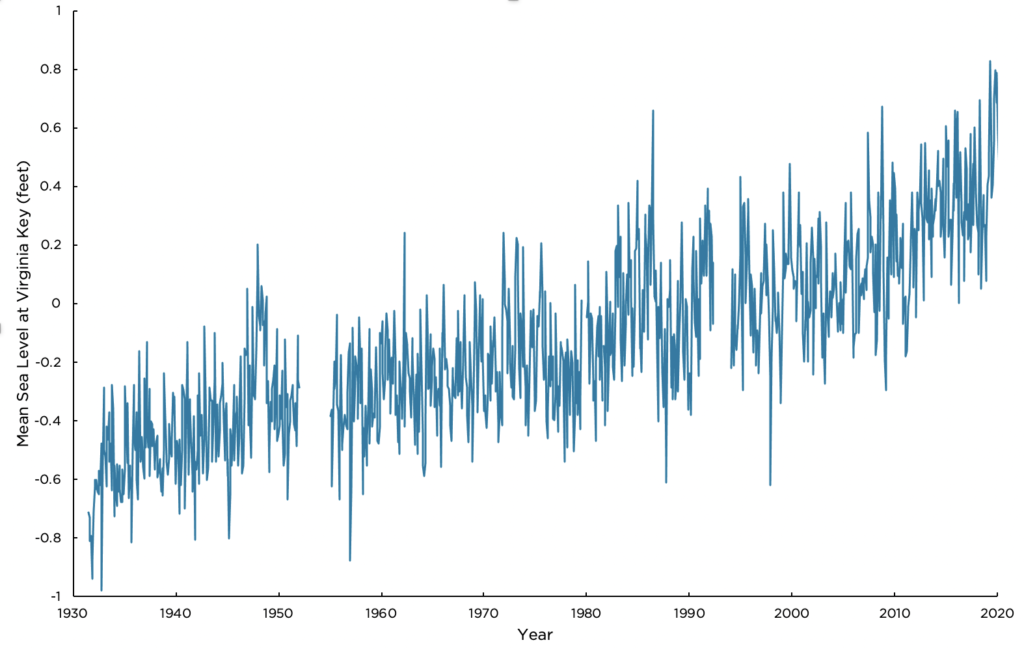Many scientific societies and academies have released statements and studies that highlight the overwhelming consensus on climate change science.
American Association for the Advancement of Science: AAAS Reaffirms the Reality of Human-Caused Climate Change
“Observations throughout the world make it clear that climate change is occurring, and rigorous scientific research concludes that the greenhouse gases emitted by human activities are the primary driver. This conclusion is based on multiple independent lines of evidence and the vast body of peer-reviewed science.” (June 2016)
American Chemical Society: Statement on Global Climate Change
“The Earth’s climate is changing in response to increasing concentrations of greenhouse gases (GHGs) and particulate matter in the atmosphere, largely as the result of human activities. … Unmitigated climate change will lead to increases in extreme weather events and will cause significant sea level rise, causing property damage and population displacement. It also will continue to degrade ecosystems and natural resources, affecting food and water availability and human health, further burdening economies and societies. Continued uncontrolled GHG emissions will accelerate and compound the effects and risks of climate change well into the future.” (2016)
American Geophysical Union: Human-induced Climate Change Requires Urgent Action.
"Extensive, independent observations confirm the reality of global warming. These observations show large-scale increases in air and sea temperatures, sea level, and atmospheric water vapor; they document decreases in the extent of mountain glaciers, snow cover, permafrost, and Arctic sea ice. These changes are broadly consistent with long-understood physics and predictions of how the climate system is expected to respond to human-caused increases in greenhouse gases. The changes are inconsistent with explanations of climate change that rely on known natural influences.”(December 2003, revised and reaffirmed December 2007, February 2012, August 2013)
American Meteorological Society: Climate Change: An Information Statement of the American Meteorological Society
"It is clear from extensive scientific evidence that the dominant cause of the rapid change in climate of the past half century is human-induced increases in the amount of atmospheric greenhouse gases, including carbon dioxide (CO2), chlorofluorocarbons, methane, and nitrous oxide.” (August 2012)
American Physical Society: Statement on Earth’s Changing Climate
"While natural sources of climate variability are significant, multiple lines of evidence indicate that human influences have had an increasingly dominant effect on global climate warming observed since the mid-twentieth century. Although the magnitudes of future effects are uncertain, human influences on the climate are growing." (November 2015)
Geological Society of America: Position Statement on Climate Change
"Scientific advances have greatly reduced previous uncertainties about recent global warming. Ground-station measurements have shown a warming trend of ~0.85 °C since 1880, a trend consistent with (1) retreat of northern hemisphere snow and Arctic sea ice; (2) greater heat storage in the ocean; (3) retreat of most mountain glaciers; (4) an ongoing rise in global sea level; and (5) proxy reconstructions of temperature change over past centuries from archives that include ice cores, tree rings, lake sediments, boreholes, cave deposits, and corals." (October 2006; revised April 2010, March 2013, April 2015).
Intergovernmental Panel on Climate Change: Synthesis Report Summary for Policymakers
“Human influence on the climate system is clear, and recent anthropogenic emissions of green-house gases are the highest in history. Recent climate changes have had widespread impacts on human and natural systems. “Warming of the climate system is unequivocal, and since the 1950s, many of the observed changes are unprecedented over decades to millennia. The atmosphere and ocean have warmed, the amounts of snow and ice have diminished, and sea level has risen.” (2014)
International academies joint statement: Global response to climate change
“The world’s climate is changing, and the impacts are already being observed. Changing agricultural conditions, ocean warming and acidification, rising sea levels, and increased frequency and intensity of many extreme weather events are impacting infrastructure, environmental assets and human health.” (2018, African Academy of Sciences and the national academies of science of the United Kingdom, Australia, Bangladesh, Botswana, Canada, India, Mauritius, Mozambique, Nigeria, Pakistan, New Zealand, Cyprus, Singapore, Sri Lanka, South Africa, Scotland, Zimbabwe, Kenya, Zambia, Malaysia, Cameroon).
US Global Change Research Program: Highlights of the Findings of the U.S. Global Change Research Program Climate Science Special Report
“Based on extensive evidence, … it is extremely likely that human activities, especially emissions of greenhouse gases, are the dominant cause of the observed warming since the mid-20th century. For the warming over the last century, there is no convincing alternative explanation supported by the extent of the observational evidence.
“In addition to warming, many other aspects of global climate are changing, primarily in response to human activities. Thousands of studies conducted by researchers around the world have documented changes in surface, atmospheric, and oceanic temperatures; melting glaciers; diminishing snow cover; shrinking sea ice; rising sea levels; ocean acidification; and increasing atmospheric water vapor.” (November 2017)
U.S. National Academy of Sciences: Understanding and Responding to Climate Change
"The scientific understanding of climate change is now sufficiently clear to begin taking steps to prepare for climate change and to slow it." (2008)


